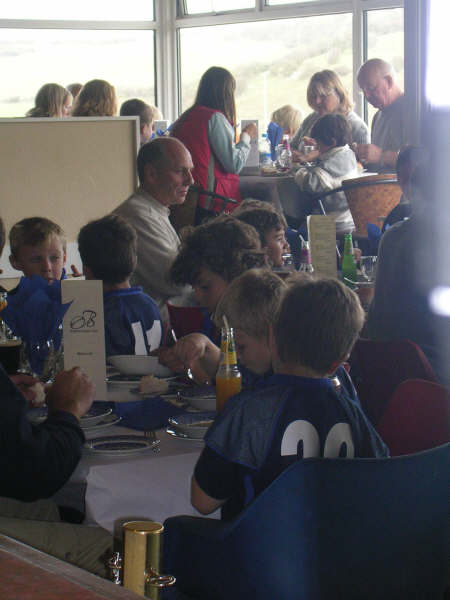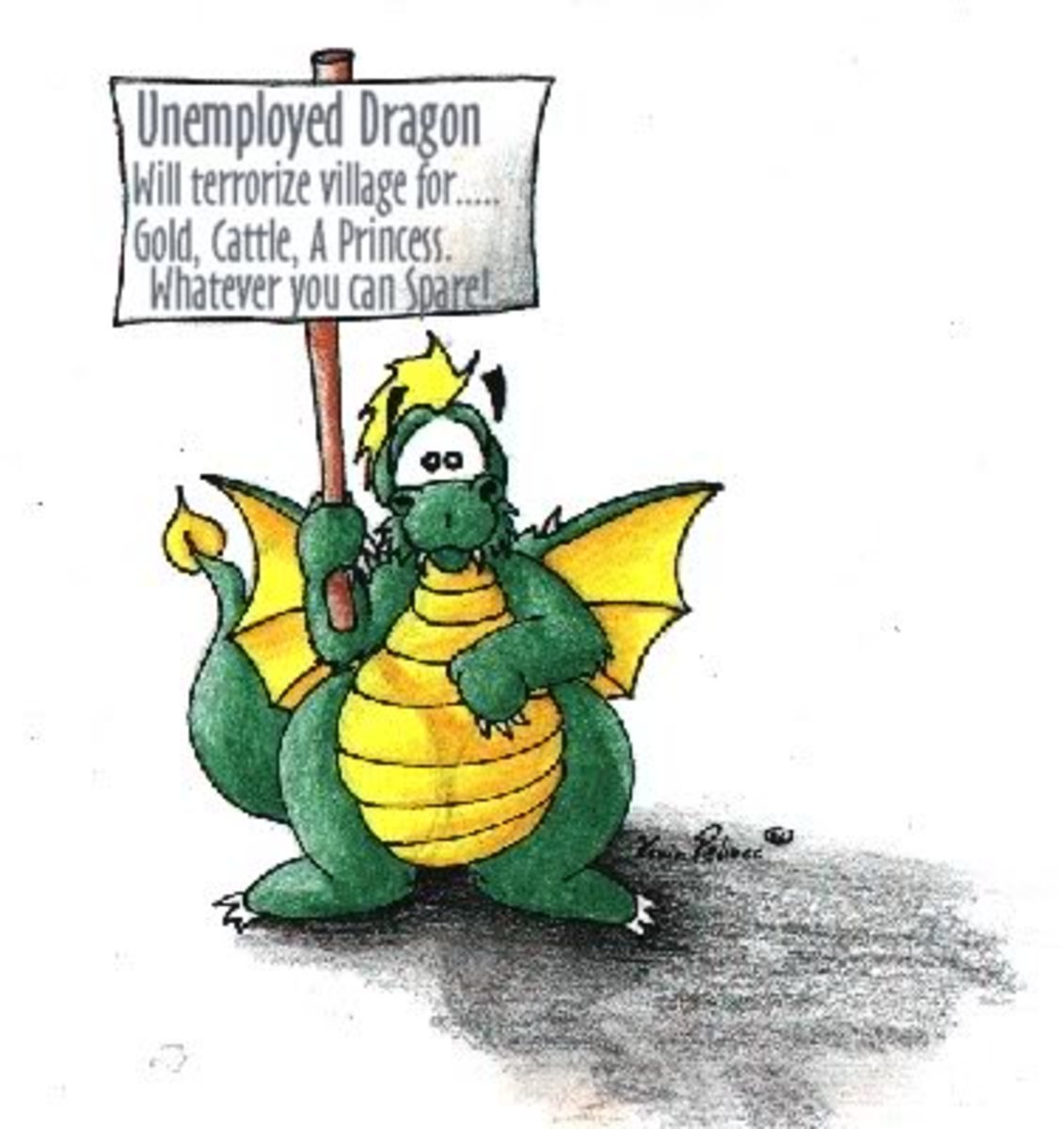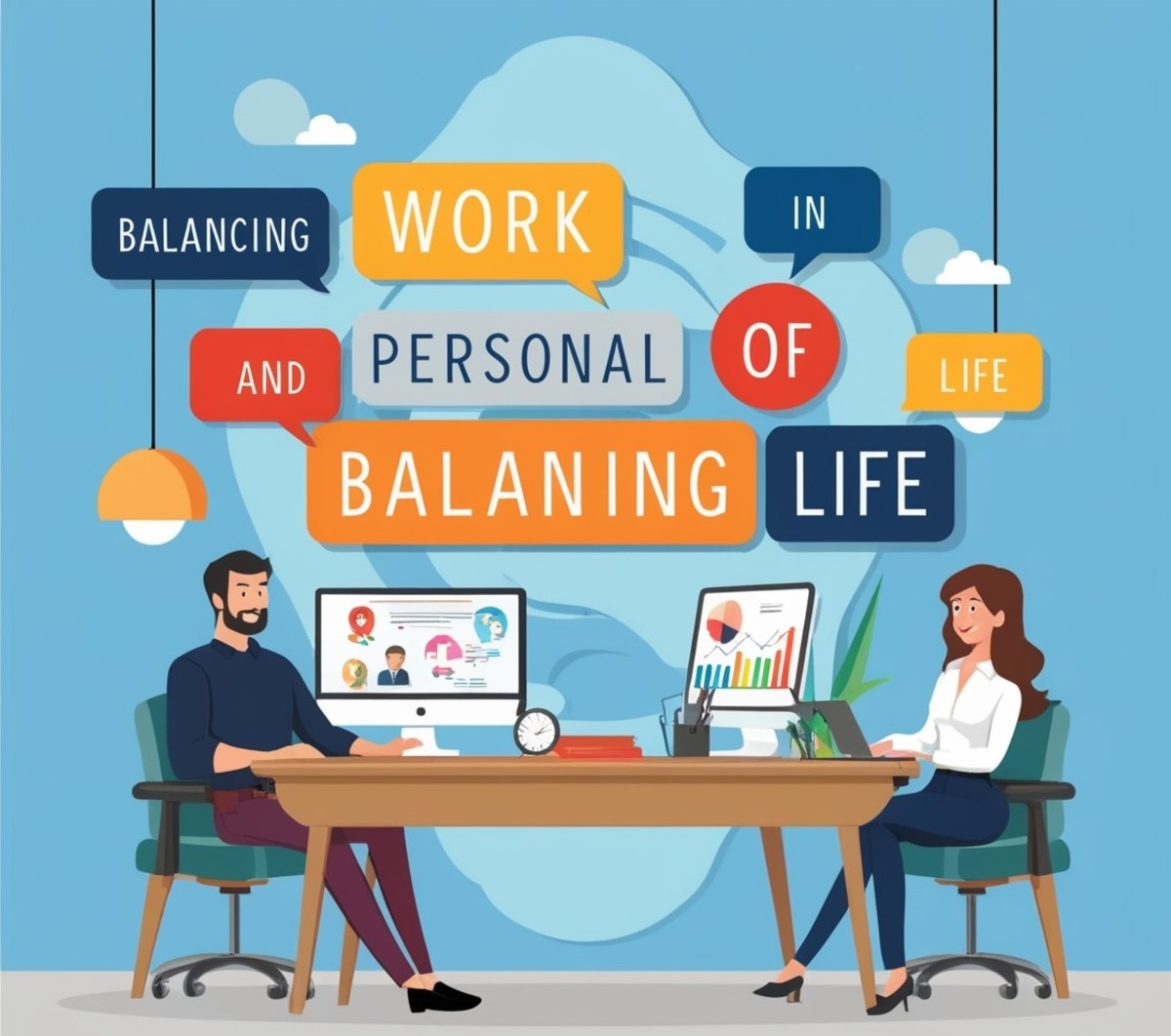How to Cope With Redundancy

Losing the job you love
I had the most wonderful job, and I can totally understand why it was coveted by many. I ran the bar and clubhouse in a rugby club on the outskirts of a city not too far from my village home. English rugby clubs at the time were small businesses with modest clubhouses financed by the well-frequented bar and maintained by the players and supporters themselves on a voluntary basis.
My job
The club I worked at was slightly different; it had a large, well-equipped clubhouse financed by the compensation received for having a major road built on its previous site. Expectations were different; the facilities and pedigree were impressive and the clientele drawn from the nearby hip and trendy city. Parents unused to rugby culture themselves bought their sons to play, and the youth teams outnumbered the adult players massively. People did not expect to have to clean shower rooms or toilets or to hoover the clubhouse carpet, and expected an experience resembling membership of the gym or golf club. Unlike little country clubs where everyone has to muck in, here, employees of the club did everything for the players, from washing their kit and laying it out (usually the remit of a volunteer kit manager or the wives of the players) to cooking them a meal after training and running their bar.
In partnership with local schools and sporting bodies, we ran a brand-new state-of-the-art artificial pitch, suitable for rugby, five-a-side football, and many other sports. I managed the clubhouse bookings including weddings and functions, managed the stock, staffed the bar and was responsible for upholding the licensing laws. Later on I was given responsibility for running the artificial pitch, an extra 91 hours of responsibility. But best of all, I served behind the bar, with a big, happy smile on my face.
My job was my identity.
That was the very best part of my job, and for many years, that was all I did, just serve pints and take the money. I would have loved to have been able to continue doing just that, but the post of manager became vacant, and there was a keen contender for the job. He was searching for a ‘proper’ job, had managed pubs in the past, and was now managing bookings for the pitch, but his eye was clearly on the bar. A committee member spotted this, felt that he would be disastrous for the bar, and she made sure that I was offered the job.
I didn’t really want to take it. I’d seen how difficult it was for the previous bar manager to work under the direction of a committee of volunteers, and I was content with enjoying my hours serving at the bar. However, I realised that if I made way for him to manage the bar he would in no time have staffed it with his friends and dropped my hours to nothing, so I had no choice but to step up if I wanted to stay there. I took my licensing exams, and financed my attendance at a managers’ course myself so that I could learn all I needed to know about running a bar.
How I loved it! I introduced local cask ales to the cellar, and won an award for beer-keeping less than a month before I was suspended. Staff turnover dropped as I built a happy, loyal team. Busy match day and training weekends meant that I was never bored, always meeting new people in the uniquely fun atmosphere of an English rugby club. The banter and fun were endless and harmless and I gave as good as I got. In fact, the bar was a welcome relief from my busy, stressful home life. In my usual daily life I was a mum to young children, and I was quite plain, and a bit shy, always in my wellies. I dressed in my gardening clothes, as I kept chickens and dogs and grew vegetables for the family table.
Behind the bar though, I changed. I took care with my appearance, and the minute I started work I left my worries behind me. I was outgoing, chatty and always smiling and making jokes. I could never have been that confident in any other part of my life, but I was so at home pulling pints of beer. I was very ‘at home’ managing the clubhouse, too. It was an isolated place, set in farmland just off very busy main roads, down a lonely road at the bottom of a valley. It was the most beautiful place I have ever worked, and even locking up on my own in the very early hours, I loved the place. Of course I was careful, and it did attract some dubious types at times, but mostly it was just me and the cattle, hares, deer, pheasant and rabbits. Whether the place was full of people, laughing, eating, drinking, or empty, with me in my beer cellar attending to my lovely ales, I adored it. The bottom line for me was that it was so much more than just a job. Outside of motherhood, which can be consuming, this job was who I was, it was my identity.

A very difficult work situation
One summer, things started to go wrong. The committee had changed and my new boss was saying things about me behind my back. When I encountered him, he acted as though I didn’t exist.
Without going into too much detail, a man had come to ‘live’ at the club, in the car park in his mobile home. He had a young rugby player, a foreign lad whom he claimed to be the guardian of, living with him. He appeared innocuous and helpful at first, but it turned out that he was prepared to do anything to remain concealed from the rest of society living in a remote corner of a deserted car park.
Of course, he was going to feel far more secure the more indispensable he made himself…insinuating himself into all the other clubhouse tasks I undertook. However many hours I put in at work, he had the advantage of living on site. He found out my mother’s maiden name to access business accounts that I’d set up, he interfered with deliveries and suppliers. He cornered me and harangued me on several occasions, telling me that I wasn't wanted and it was best if I just resigned. As I have described, this was a remote location and I was in the position of being alone on the premises when locking up, which didn't bother me, except now I had this guy always around, and I was very worried by him. I looked to my boss for support, and despite problems with him shouting at another female staff member, his reaction made me realise with horror that this was all part of a plan. Everything this guy did was backed up by my boss.
My boss appointed a new rugby coach, and to boost his earnings, he was to be in charge of the pitch-hire. I went out of my way to teach him the ropes, but he sent emails to others accusing me of being unhelpful to him. This was a blatant lie, and I had my instructive emails as proof. As diplomatically as possible, I pointed this out to my boss, and fronted the coach with it, but the long and the short of it was becoming obvious… I was being forced out.
What followed as the summer ended and the autumn rugby season began, was a horrible few months of trying to do my job whilst being undermined by these three at every twist and turn. They turned people against me, piled the work on me and were totally unsupportive. I felt like an animal being hunted down. Then, the week before Christmas, with a full diary they had packed with events, I was so run-down I got the ‘flu. I arranged cover for myself, the staffing was always done in advance anyway, and I made sure that everything would run properly, and indeed, the events went ahead without problems. On the day we closed for Christmas, two days before Christmas Day, I received an email which devastated me. I was being suspended from work, for ‘absence without leave‘, and other ‘serious matters’. My world fell apart. I didn’t even know if I would be paid, how were we going to pay for the kids’ Christmas? The following day, Christmas Eve, was spent returning some presents to shops as I couldn’t be sure we’d be able to pay the credit card bill. I went from talking to dozens and dozens of people on the phone, by email and face-to-face every week, to complete silence. I was liaising with wedding and event customers right up until my suspension, then when they called me, I had to tell them that I’d been suspended. It was humiliating, awful, so devastating. Christmas was over, the kids went back to school, but I had no job to go back to. I was thrown into a completely new place. I didn’t sleep, I couldn’t stop crying.
Help is out there for you if you feel bullied at work
Next steps
I took advice from ACAS and an employment solicitor. I submitted a complaint, and was bullied even further over the phone and in the grievance meeting, by the managing director of a well-known high-profile medical company whose son played for the club and whom they had tasked with the job of scaring me into submission. He was threatening, aggressive and bordering on abusive. It was absolutely awful.
I had to inform myself about employment laws and what to do in this situation. Legal aid was not available for employment disputes and solicitors cost more per hour than I earned in a week. I fought hard for two years to put my case to a tribunal. I had always joked that I would like to write a book, and by the time the case came to court, I had written the equivalent of one in witness statements and the like. Christmas 2008 was ruined by the shock of being suspended and Christmas and New Year 2009 was ruined by the timing of my hearing, as I had to spend Christmas week preparing my case. Days before Christmas 2010 the result came through. It had been a gruelling, horrible, hard two years, and I had lost the case.
Should you pursue your grievance/redundancy through the Tribunal courts?
What can I say? Employment tribunals look at very narrow points of law and not at the appalling treatment an employee may have received. They are not there to compensate you for damages or loss caused by workplace bullying, so don't imagine that someone is going to listen to how you were treated and react in a human way. Tribunals can only deal with points of law. My boss attempted to get rid of me by bullying, but when he saw that I wasn’t an easy target, he made enough retrospective nods towards the correct redundancy procedures that the tribunal had to find in his favour. They did unofficially acknowledge the appalling treatment I had endured.
Only attempt this route if you really, really feel you have to. You will need to have good emotional support and a degree of toughness, and be prepared to write thousands of words and supply evidence. Many, many times I searched my soul and questioned myself, did I want to go on? At several junctures I decided not to proceed...but a small voice kept nagging at me to carry on. It would have been so easy to give in and let it all slide. If that is your choice, then I salute it as a wise one. That's not to say that I wouldn't do the same again,,,its a very individual thing.
How was your workplace bullying dealt with?
Rebuilding a shattered career/work-life
I was a loyal employee, and I missed 10 years worth of weekends with my own family making sure that other people and their children enjoyed theirs. I didn’t deserve to have my time there finished in that way. I still miss the place, the people, the vibe, however, the right thing happens, and my life has mostly moved on.
Running a bar involves working evenings and weekends when most people are socialising, so work was my social life. As a result of how I was treated, I had to battle feelings of isolation, anxiety, depression and hopelessness, to create a new social life.
I waited for my confidence to return, but it didn't. If I'm honest, it still hasn't, but I no longer let it stop me. I put on a brave face and started a successful cleaning business, and later was able to fund my retraining as a doula. This has provided me with a new network of people and a way of doing something I am good at, but I still continue to search for a job that makes me feel the way that one did. Four years on, and the search for that elusive sense of belonging and happiness still continues.
If you feel that the same thing is happening to you, then keep a diary of relevant events. Don’t delete emails, and make sure you respond reasonably to everything. Challenge things, get support from wherever you can, both inside and outside of your organisation. Report matters to your superiors, keep records of what you have done. Talk to your union if you are a member. Talk to your friends and loved ones, don't suffer in silence. Contact ACAS for advice.
I had to take it to tribunal and fight my corner, for my own sanity and self-respect, as well as being able to prove to future employers that I had done nothing wrong. But if this happens to you, and you want to do the same, don’t expect an easy run, and don’t do it for any money you think you might receive. I went out to win, but I was prepared to lose, and thank goodness I was, because I did. It was a blow, but I had already lost my lovely job and it was done in such a way that I could never return, even in a social capacity, and nothing they could do at the tribunal could be worse than that.
Be clear in your mind about what you want to achieve by any action you undertake, and be prepared that it may not go your way. Losing your job will stir up a host of emotions, like anger and fear for the future, and you will probably also grieve for your loss. You may go through feelings of sorrow, but that is natural. Don’t be afraid to experience these feelings and cry for your loss, its healthy to do so.
One of the hardest parts of being suspended for the spurious reason of absence without leave was that I felt people would suspect me of wrongdoing. Not only had my job and social life gone, but my reputation as a good, honest licensee and employee was damaged, as suppliers and customers questioned my absence.
I lost contact with so many people, because they weren’t sure what had happened, and they believed that there’s no smoke with out fire. They suspected me of doing something wrong. This was exactly the reaction my boss hoped for, because it weakened me, and gave weight to his attempt to get rid of me without the expense of a redundancy payment. It was easier for them to remain in the pack, part of the tribe, and to isolate me.
I don’t blame them, or feel bitter towards them, and if you find yourself in a similar position, I would urge you to adopt the same mindset, for your own sanity. Your ill-wishes will not affect them one bit but they will affect you, and not in a good way. I wish you luck. I know how that loss feels, and I know that with time it’s possible to move on and be happy. I still have a little way to go, but I’m heading in the right direction.
Help with redundancy
Coping emotionally with redundancy and unemployment
It’s not a good time economically to be trying to find a new job, particularly if you are in middle-age and without a good reference, but try to keep positive, and love what is, its all you can do. I lost all faith in or desire to work for another person, so I became my own boss. Maybe you could consider doing the same?
I started with a simple cleaning business…anyone can clean and people will always be willing to pay for a trustworthy cleaner. You will have a simple skill that people need, however humble it may be, if it keeps a roof over the family's heads and bread on your table, you will do it.
Try and see the opportunity in this, rather than judging the situation. I could have felt demeaned and ashamed and very depressed when at 44 I had to enter the unemployment office for the first time in my life, but I consciously steered clear of those emotions, and despite witnessing some unprofessional and demeaning treatment both of myself and others by some of the staff, I did make the most of their services for help with constructing a new CV, and finding out which career would be best for me (Cellar technician or bar manager! Who would have guessed!) Don’t close your mind to help that’s out there, and drop your prejudices about who will be attending the unemployment offices. Nowadays its full of experienced, valuable workers who are in a similar position and probably feeling the same way as you.
Start to rebuild your life.
Be as organised in your time as if you were still at work. Rise early, dress well and put your make up on/shave as usual. Its very stressful worrying where your money is going to come from, but be proactive and seek the help that’s out there. Build in some recreational time, you can do things that don’t cost money. Do some things you have wanted to do but haven’t previously had the time. Keep a diary, a journal of your feelings and what you’re doing with your days. This is all part of your journey. Maybe you'll turn it into a book, perhaps your children will read it in years to come, or you will revisit it and realise how far you've come.
Consider volunteering. not Your local newspaper might advertise volunteer vacancies. Your local hospital will welcome a few hours a week, and you don't need to work on a ward if you don't want to. Volunteers work in the tea shop, reception, in the administrative areas and in the clinics. Volunteering will look great on your CV, and will provide you with an up to date reference. Most importantly it will bring you into contact with other people and situations, out of which opportunities arise. Being around people will keep you grounded and both the company of others and service is good for the soul.
I am lucky enough to have gym membership for a medical condition, and the gym has been a saviour for me. If I had to pay for this however, financially this would have been one of the first things to go, so if you can't keep up the gym payments then try and find some alternatives to ensure that your physical activities don’t dwindle. Exercise produces endorphins, and they are our body’s natural feel-good substances. Take up running, or power walking, or just walking. Put the radio on and dance…just as we dance for joy, dancing produces a feeling of joy. If you can no longer afford to lift the gym’s weights, maybe buy some cheap weights on eBay. I walk my dog and when we get home I drop him off but keep my trainers on and go back out for another walk or run. I'm nicely warmed up for the exercise, and tacking it onto a task like dog-walking, which I have to do every day, ensures that I stick to the routine and it becomes a habit that I don't even have to think about.
Make sure that your inner dialogue remains positive. This is not about you, its about the economic climate, or a myriad of other issues, but you are still a valuable individual with a contribution to make, it’s just time for change even though you weren’t expecting it. This testing period of time is just a stepping stone to the next phase in your life, and it has its own lessons and times of value, so remain in the moment, and stay positive about your future. Good Luck!
This content reflects the personal opinions of the author. It is accurate and true to the best of the author’s knowledge and should not be substituted for impartial fact or advice in legal, political, or personal matters.
© 2012 Jil Wild Manning










